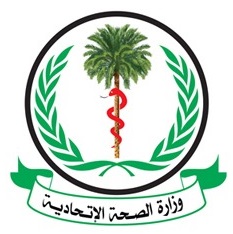Cholera Outbreak in Sudan: 22 Dead, Hundreds Infected Amid Ongoing Crisis
By Adebowale Bello. BTech (Microbiology). Freelance Health Writer.

Monday August 19, 2024. A cholera outbreak in Sudan has claimed the lives of at least 22 people and infected hundreds more, exacerbating the country's ongoing health crisis. The outbreak, which health authorities attribute to contaminated drinking water and adverse weather conditions, has rapidly spread across the war-torn nation.
Health Minister Haitham Mohamed Ibrahim declared a cholera epidemic on Saturday, following the confirmation of 354 cases across various regions. The declaration came in coordination with the eastern state of Kassala, United Nations agencies, and health experts, after the cholera pathogen was identified by the public health laboratory.
Margaret Harris, a World Health Organization (WHO) official, reported on Friday that 11,327 cholera cases and 316 deaths have been documented in Sudan so far. Harris cautioned that the actual numbers could be higher, given the challenges in accurate reporting.
Cholera, a highly infectious disease, can cause severe diarrhea leading to rapid dehydration and death within hours if untreated. The disease is transmitted through the consumption of contaminated food or water, making it particularly deadly in regions with poor sanitation. Children under five are especially vulnerable.
Related: Cholera in the African setting: What is it? Who gets it? How to treat and prevent it
This outbreak is yet another blow to Sudan, where a major cholera epidemic in 2017 resulted in over 700 deaths and 22,000 infections in less than two months.
Sudan’s humanitarian situation has deteriorated further due to deadly seasonal floods in recent weeks. The floods have claimed dozens of lives, destroyed critical infrastructure in 12 of the country's 18 provinces, and displaced around 118,000 people, according to the United Nations’ migration agency.
Compounding the public health disaster is the ongoing civil war, which erupted in April last year. Fighting has turned cities, including the capital Khartoum, into battle zones, crippling civilian infrastructure and further straining an already weakened healthcare system. Many hospitals have been forced to close, leaving the population with limited access to medical care.
Source: Aljazeera
Related:
General epidemiology of cholera
Cholera Outbreak Strikes Kenya After Devastating Floods
Seven Common Communicable Diseases in Africa: Causes and Control
Published: August 19, 2024
© 2024. Datelinehealth Africa Inc. All rights reserved.
Permission is given to copy, use and share content for non-commercial purposes without alteration or modification and subject to source attribution.
DATELINEHEALTH AFRICA INC., is a digital publisher for informational and educational purposes and does not offer personal medical care and advice. If you have a medical problem needing routine or emergency attention, call your doctor or local emergency services immediately, or visit the nearest emergency room or the nearest hospital. You should consult your professional healthcare provider before starting any nutrition, diet, exercise, fitness, medical or wellness program mentioned or referenced in the DatelinehealthAfrica website. Click here for more disclaimer notice.